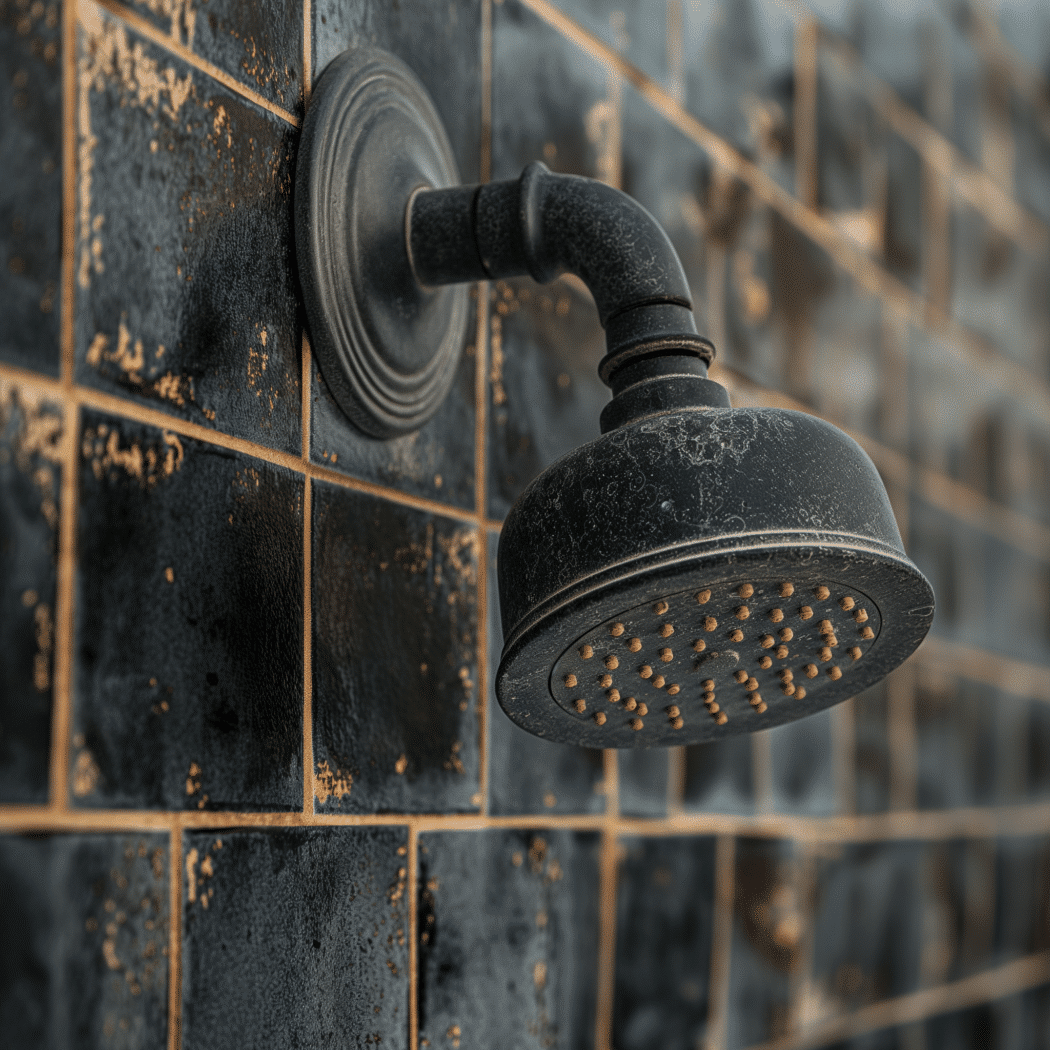Welcome to the sunny side of the U.S.! Southern California is renowned for its gorgeous weather, stunning beaches, and vibrant lifestyle. But living in paradise comes with its quirks, and one of them is dealing with hard water—a common challenge that might not be on your radar until you notice the effects on your home and daily living.
What’s the Deal with Hard Water?
Hard water contains high levels of minerals like calcium and magnesium. While these minerals are natural, their high concentration can lead to some annoying problems in households across Southern California. From spotting on dishes to buildup in pipes, the impact of hard water is felt in various aspects of domestic life, influencing everything from your morning shower to the lifespan of your appliances.
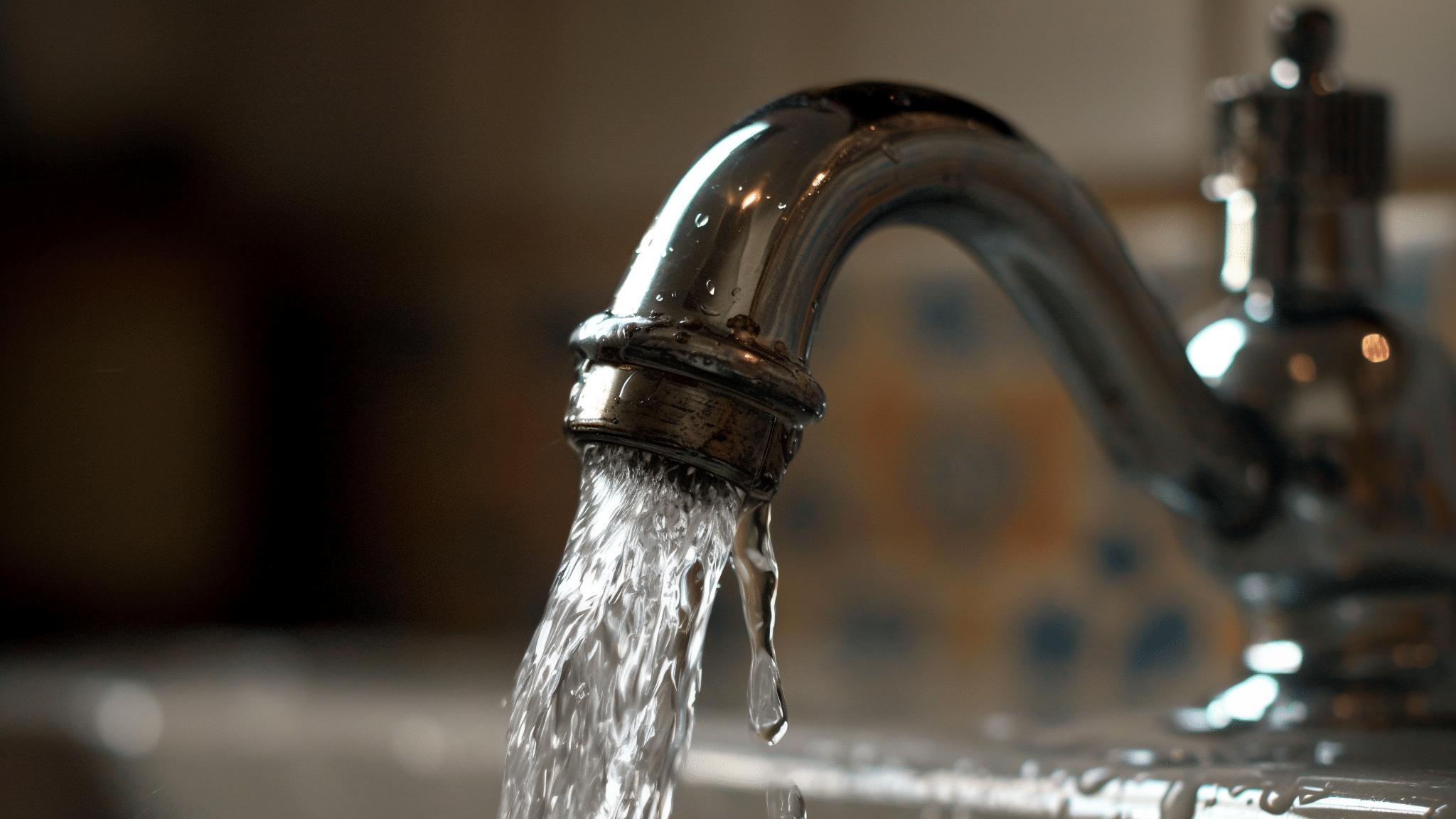
Why Should You Care?
Besides the obvious nuisance of spotty glassware and dry skin, hard water can have more profound implications on your plumbing and appliances. Over time, the minerals deposit themselves in pipes and on surfaces, potentially leading to blockages and reduced efficiency of water heaters and washing machines. Understanding and tackling hard water not only eases your daily chores but also saves money on maintenance and replacements in the long run.
In the following sections, we’ll dive into the sources of hard water in Southern California, explore its impacts more deeply, and discuss both simple fixes and comprehensive solutions to manage this hardy issue. Stay tuned to turn your hard water woes into water wonder!
Understanding Hard Water – U.S. Geological Survey
California’s Water Resources – Department of Water Resources
Understanding Hard Water in Southern California
Southern California’s hard water is more than just a minor inconvenience; it’s a result of the region’s unique geographical and environmental setup. Let’s break down what causes the high mineral content in our water, and why Southern California, in particular, faces these challenges.
Where Does Southern California’s Water Come From?
Much of Southern California’s water supply is imported from two primary sources: the Colorado River and the State Water Project. The Colorado River traverses several states, each with different geological characteristics, picking up minerals like calcium and magnesium along the way. Similarly, the State Water Project channels water from the northern parts of California, where water travels through various natural and man-made channels, accumulating minerals before it reaches our taps.
- Learn more about the State Water Project on the California Department of Water Resources website.
- Detailed insights into the Colorado River can be found on the Bureau of Reclamation site.
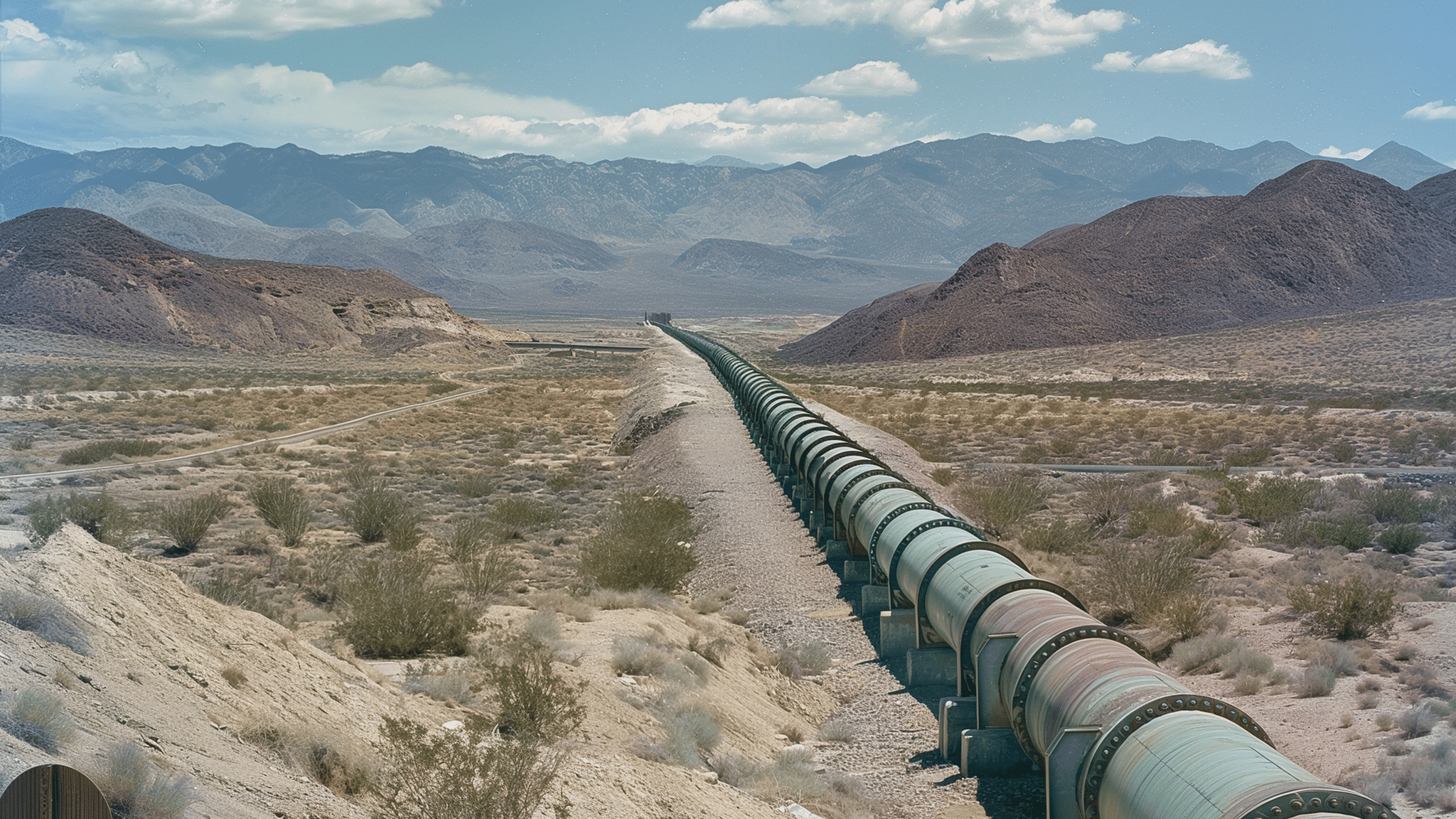
Geological Contributions to Hardness
The geology of Southern California plays a significant role in the hardness of the water. As water moves through the soil and rocks, it dissolves minerals from the earth and carries them along. Areas with limestone and chalk, for example, tend to contribute to higher levels of calcium and magnesium in the water, leading to greater hardness.
Environmental Factors
Environmental factors also influence water hardness. Seasonal changes can affect water flow and mineral concentration. During wet seasons, more runoff can lead to higher mineral deposits in reservoirs. Conversely, in dry seasons, reduced water levels can increase the concentration of minerals in the remaining water.
Understanding these sources and factors is crucial for any Southern Californian looking to effectively manage and treat their home water supply. By recognizing the origins of our water’s mineral content, residents can better select treatments and solutions tailored to their specific water quality.
For more on the environmental impacts on water hardness, check out the U.S. Geological Survey’s overview of water hardness.
Impacts of Hard Water
Living with hard water in Southern California is a reality many residents face. Although not harmful to health, the high mineral content in hard water can have a variety of impacts on household appliances, plumbing, and daily living. Here’s what you need to know about the challenges posed by hard water and how it can affect your home and lifestyle.
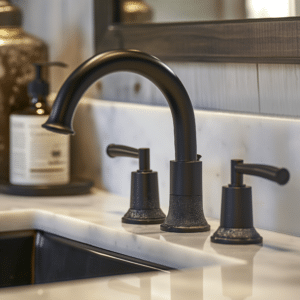
1. Plumbing and Appliances
Hard water can be tough on household plumbing systems and appliances. The minerals in hard water tend to deposit themselves inside pipes, water heaters, washing machines, and dishwashers. Over time, these deposits, known as scale buildup, can lead to clogs and reduced water flow, increasing the risk of damage and potentially costly repairs. Scale can also decrease the efficiency of water heaters and increase energy costs as more heat is required to warm water through layers of mineral buildup.
2. Cleaning and Maintenance Challenges
Anyone who has tried cleaning surfaces or washing clothes in hard water knows it doesn’t make the task easier. Hard water reduces the lathering ability of soaps and detergents, meaning you need to use more products to achieve the same level of cleanliness. It can also leave streaks or a filmy layer on tiles, glassware, and silverware, and make laundry appear dull and feel rough over time.
3. Personal Care
Hard water can also have a noticeable effect on personal care. Bathing in hard water can leave skin feeling dry and itchy due to the soap scum that it forms, which doesn’t rinse away as easily. Similarly, washing hair in hard water can make it feel sticky and look dull because shampoo and conditioner may not rinse out thoroughly.
4. Economic Impact
The effects of hard water extend beyond just the immediate annoyances. The need for more frequent repairs and replacements of appliances, increased energy costs, and higher consumption of cleaning products can all add up. This means households in hard water areas might find themselves facing higher than average water-related expenses.
For those living in Southern California, understanding these impacts is the first step toward mitigating the effects of hard water in their homes. By recognizing the challenges, residents can better prepare and find effective solutions to manage the hardness of their water.
Understanding these challenges is essential for effective home maintenance in hard water areas. By addressing hard water issues, homeowners can improve their quality of life and potentially reduce home maintenance costs in the long run.
Solutions and Management for Hard Water
Dealing with hard water in Southern California requires a combination of proactive measures and effective solutions. From installing water softeners to using specific cleaning techniques, here are some practical ways to manage hard water issues in your home.
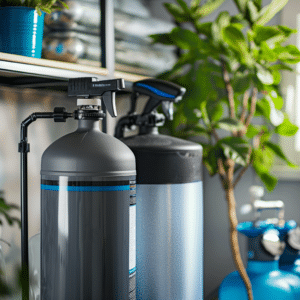
1. Water Softening Systems
The most common and effective solution for hard water is the installation of a water softener. These systems work by replacing the calcium and magnesium in the water with sodium or potassium ions. This process not only prevents scale but also improves the efficiency and lifespan of home appliances. There are several types of water softeners available, including salt-based, salt-free, dual-tank, and magnetic softeners, each with its own benefits and considerations.
- Salt-based softeners are highly effective but require regular maintenance and replenishment of salt.
- Salt-free softeners use a mechanical filter to neutralize minerals rather than removing them, which is a good option for those concerned about sodium intake.
- Magnetic softeners use magnetic fields to alter the electromagnetic properties of the calcium and magnesium ions so they are less likely to form scale.
2. Cleaning Agents and Household Tips
For tackling hard water spots and buildup, regular household vinegar can be a game changer. Its natural acidity helps dissolve mineral deposits, making it effective for cleaning faucets, showerheads, and other surfaces. Additionally, specific cleaning products designed for hard water can be used to combat residue on dishes and glassware.
3. Specialized Cleaning for Shower Glass
Hard water can be particularly harsh on bathroom fixtures, including shower doors. Regular maintenance is crucial to prevent permanent damage. For a thorough guide on maintaining and cleaning shower glass, check out this comprehensive article: How to Clean Hard Water Stains from Shower Doors. This guide offers step-by-step instructions and tips to keep your shower doors sparkling clean and free from hard water stains.
4. Routine Maintenance and Plumbing Checks
Regularly inspecting plumbing and appliances can help catch early signs of hard water damage. It’s advisable to occasionally hire a professional to inspect and possibly descale the plumbing systems in your home to ensure optimal performance and prevent severe mineral buildup.
By adopting these solutions and regularly maintaining your home, you can significantly mitigate the effects of hard water. Effective management not only preserves the condition of your home and appliances but also enhances your daily living experience in regions with hard water.
How to Clean Hard Water Stains
Dealing with hard water stains can be a frustrating part of household maintenance, especially in areas with high mineral content in the water like Southern California. But don’t worry—there are effective methods to tackle these stubborn stains on a variety of surfaces, from glass to ceramics and metals. Here’s a straightforward guide to keeping your home free from the unsightly marks of hard water.

1. Vinegar: Your DIY Best Friend
White vinegar is one of the most effective natural cleaners for hard water stains. Its acidic nature helps dissolve the alkaline mineral deposits. For a simple cleaning solution, mix equal parts of white vinegar and water in a spray bottle. Apply it to the stained area, let it sit for a few minutes, and then scrub gently with a soft brush or cloth. For tougher stains, you can use the vinegar undiluted.
2. Commercial Cleaners
If DIY methods aren’t cutting it, there are numerous commercial cleaners designed specifically for hard water stains. Look for products containing ingredients like hydrochloric acid or phosphoric acid, which are particularly effective against mineral deposits. Always follow the manufacturer’s instructions and take necessary safety precautions, such as wearing gloves and ensuring good ventilation.
3. Preventive Measures
Regular cleaning is key to preventing the buildup of hard water stains. Wiping down surfaces after use, especially in the bathroom and kitchen, can significantly reduce the occurrence of stains. For shower doors and faucets, consider using a squeegee after each use to remove water droplets before they dry and leave residues.
4. Specialized Cleaning for Shower Glass
Shower glass can be particularly challenging when it comes to hard water stains because the glass is constantly exposed to water. For detailed instructions on how to maintain and clean shower glass effectively, check out this thorough guide: How to Clean Hard Water Stains from Shower Doors. This resource offers step-by-step advice tailored specifically to shower glass, ensuring you get the best results without damaging the surface.
By integrating these cleaning methods into your regular maintenance routine, you can keep hard water stains at bay and maintain the pristine look of your household surfaces. Regular attention and the right techniques are all it takes to manage the challenges of hard water in your home.
Wrapping Up: Navigating Hard Water in Southern California
Living in Southern California means enjoying the sun, the surf, and, unfortunately, dealing with hard water. We’ve explored the sources of this water hardness, its effects on daily life and household maintenance, and the most effective ways to combat and manage these issues. Whether you’re installing a water softening system or simply using vinegar to clean, understanding your water is the first step towards protecting your home and improving your quality of life.
Remember, the key to managing hard water effectively is consistent maintenance and being proactive about your approach. Regular cleaning and occasional professional checks can keep your appliances running smoothly and your home looking spotless.
Additional Resources and References
For those looking to dive deeper into understanding and managing hard water, or for specific advice tailored to Southern California’s water issues, here are some valuable resources:
- U.S. Geological Survey – Water Science School: Offers a wealth of information on water hardness and its implications. Learn more about water hardness here.
- California Department of Water Resources: Provides updates on water projects and management strategies that impact water hardness in the region. Visit the California DWR site.
- Environmental Protection Agency (EPA) – Water Research: Explore various studies and guidelines on water quality and treatment methods. Check out the EPA’s resources.
- Affordable Frameless – Shower Glass Cleaning Guide: For practical tips on cleaning hard water stains specifically from shower doors, refer to this detailed guide.
By using these resources and implementing the suggested solutions, you can ensure that hard water issues do not interfere with the joy of living in one of the most beautiful regions of America. Stay informed, stay proactive, and keep your home running smoothly in the face of hard water challenges.
HELPING TO IMPROVE SPACES
Affordable Frameless Shower Doors team of professionals brings decades of construction and home remodel experience to you living spaces. Attention to detail is vital for shower glass and we pride our selves on consistent and professional fabrication and install every time.

